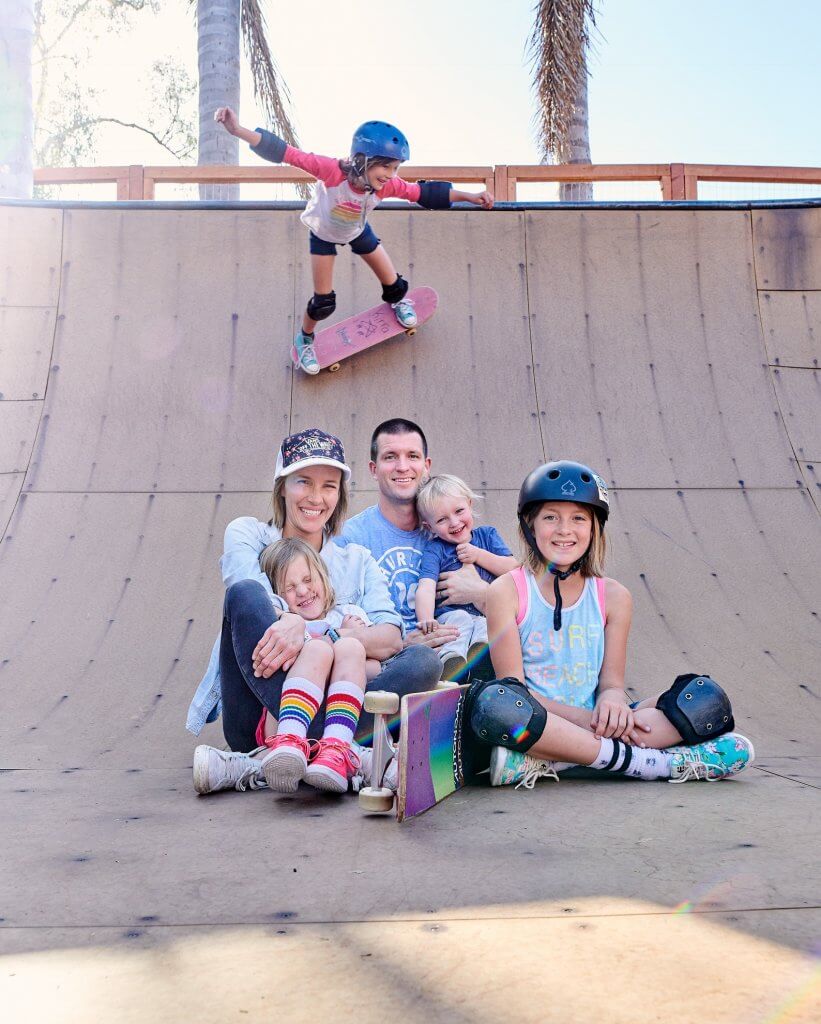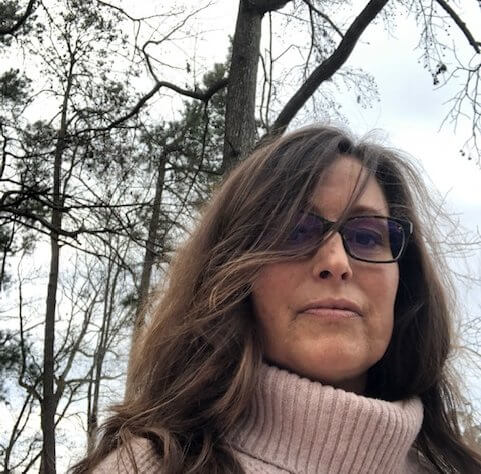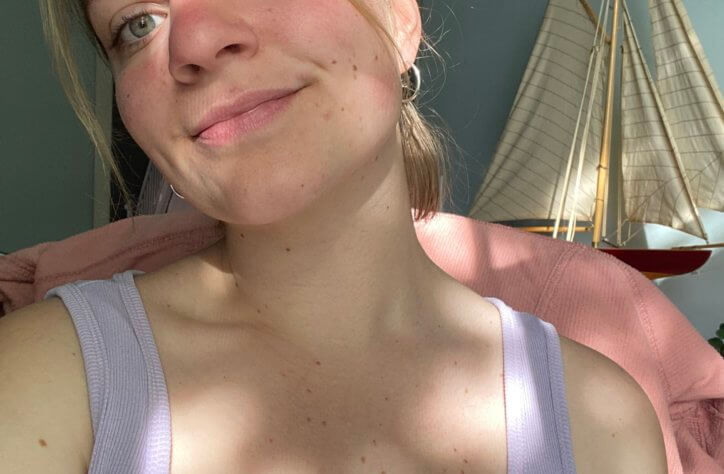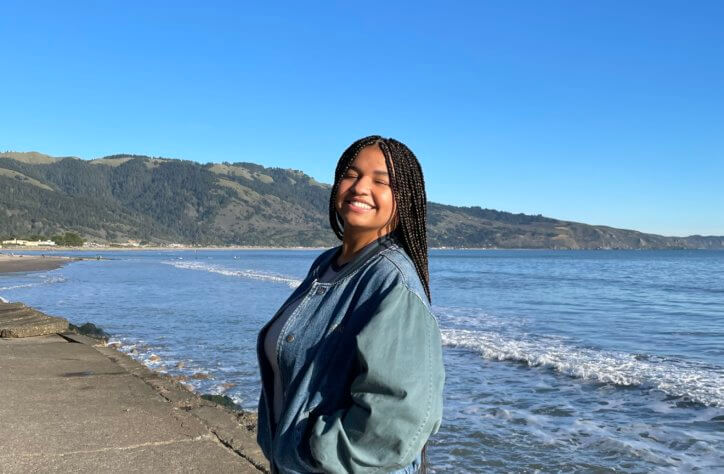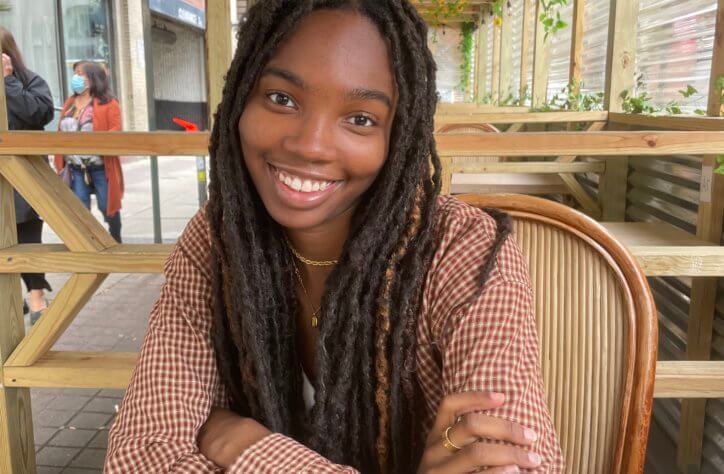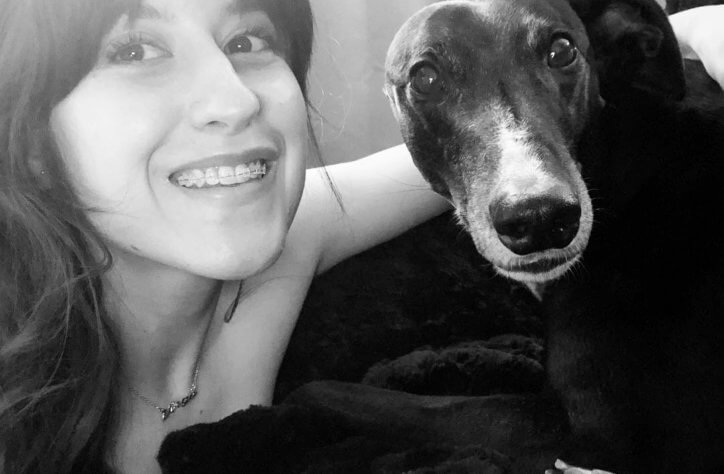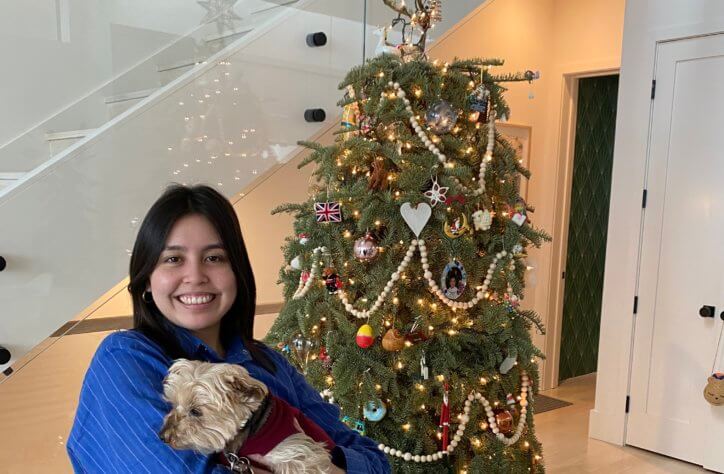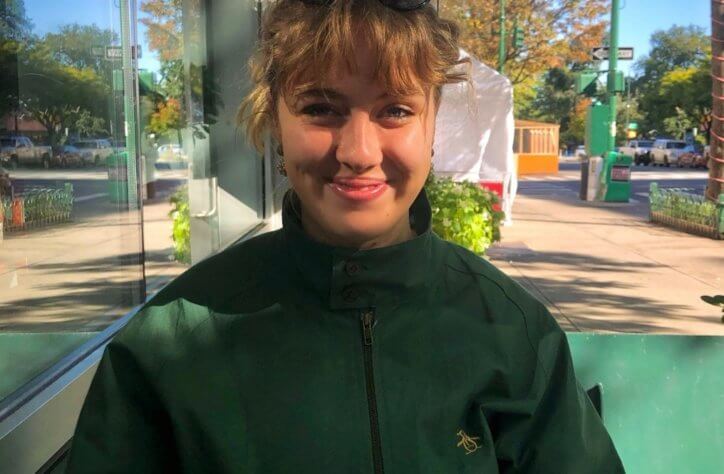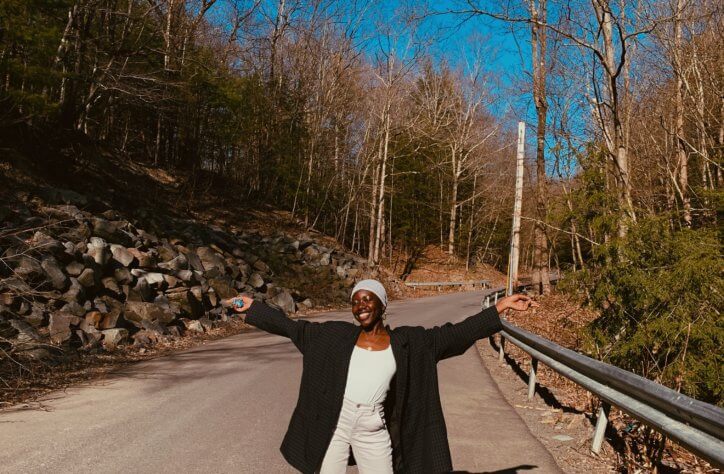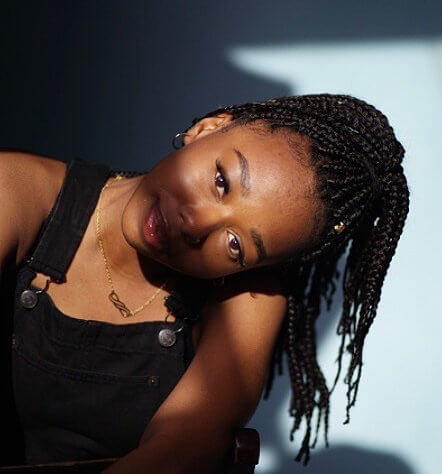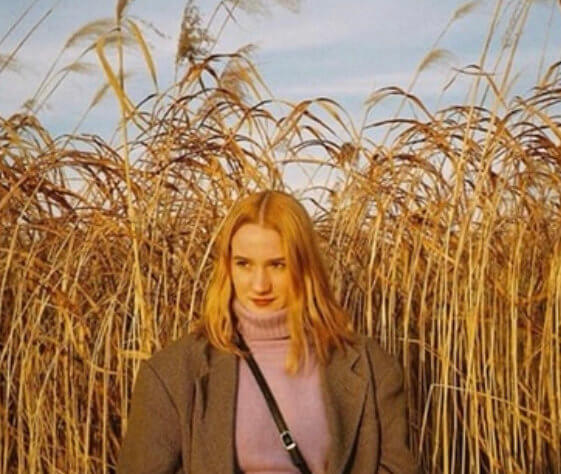Doyenne
Doyenne is a skateboarding brand entirely made by women that design ungendered clothes and accessories for everyone. The brand supports minorities including women, LGBT community, POC and people with disabilities, aiming to create a bigger space for them within subcultures, specialising in skateboarding. Part of the profit of everything we sell goes to different organisations that help women and disadvantaged youth through skateboarding, education and other types of support.
With Doyenne we try to raise awareness about inclusivity in skateboarding cultures and create opportunities within it. Inclusivity and equality are two of the necessary points to make sure that any community, in general, is giving the same opportunities to each of its members. In skateboarding, as in many other realities, there are privileges – and not being part of that privileged group will probably discourage people from getting into a sport or anything they think they might like. Offering inclusivity means raising awareness that everybody can be part of something if they want to.
We decided to start organising beginners sessions because we believe that people just need an invitation, even to a small event like ours, to feel they have an opportunity to learn and start skating. We believe that everyone deserves the same opportunities, and there are not many for women, queer folks and people with disabilities within skateboarding, so we decided to create that opportunity for them.
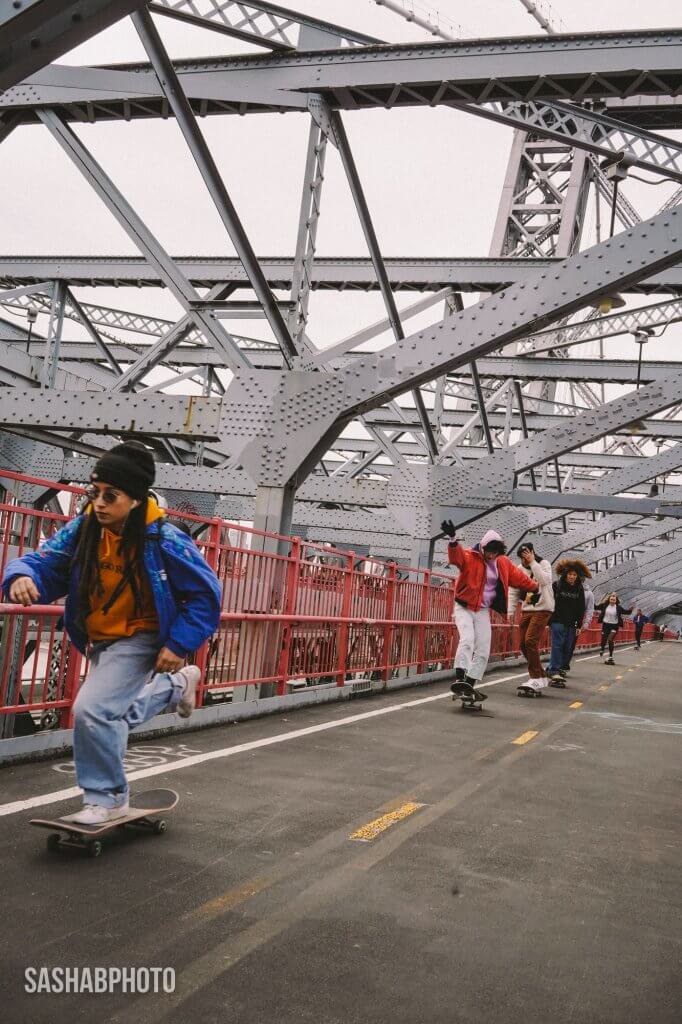
Photographed by Sasha Charoensub @sashabphoto
SIBLING
Sibling is a London-based skate collective for people of all backgrounds, bodies, and abilities. We formed in the summer of 2018 with inclusivity at the forefront, focusing on welcoming and supporting womxn, POC, non-binary, LGBTQIA+ individuals in the skateboarding community.
Many of us share a similar story when it comes to skating, finding interest in the sport from a young age but not seeing the representation or feeling the support that would encourage us to follow through. The air of exclusivity makes it difficult for people who don’t fit the traditional image of skateboarding to join the community, its an intimidating, elitist and honestly scary atmosphere, especially for beginners. Sibling exists to turn that notion on its head. It’s a name we can gather under, a community to find joy in, an opportunity to celebrate each other, and a space where people can find the strength to pick up and continue skateboarding, no matter who they are.
We aim to keep Sibling open and welcoming to everyone, that’s why we’ve chosen to have no founders, no leaders, and no hierarchy, making decisions collectively and democratically. Meaning that not only can anyone join Sibling, but anyone can contribute too- this space belongs to all of us and we shape it together.
When we come together and skate, it gives us the confidence to take up space, carve our own rules into the bowls and slopes of the parks we gather in, and exist in places that didn’t exist for us before. Uniting as Sibling is a statement that skateboarding isn’t just for cis-men, it’s for us too. We prove this every time we get on a board, every time we fall and every time we help each other up again.
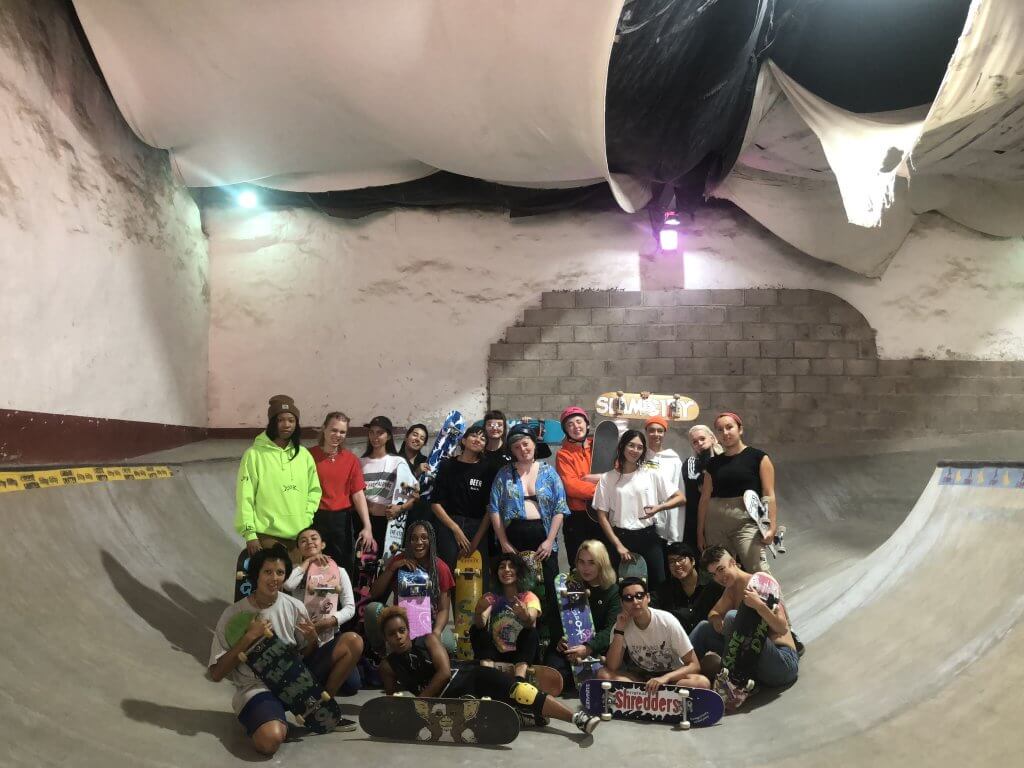
Boarders Without Borders
Boarders Without Borders is the UK’s first, women of colour longboarding crew. We started when our founder was watching YouTube vloggers & saw longboarders doing their thing in California – that’s when she fell in love with it! Problem was, she was a British Pakistani woman living in Birmingham, UK – the complete opposite to those who were boarding and where they were boarding. So she longboarded by herself, felt lonely and couldn’t turn to forums or find spaces that existed to join this culture. So she created it herself. A year later, we now advocate for more accessibility, representation and inclusion in sport because we believe in the benefits sport has on an individuals growth such as confidence, leadership, social skills and mental health. As women of colour, we want more of this for other women of colour to break the current societal, cultural and environmental barriers we have placed upon us. There’s a certain image sport has, for example what a “skater” is meant to like and the lifestyle that comes with being that type of person. That image is not us. It’s not a Muslim woman with a hijab, not a black woman with locs or a shaved head, not an Arab woman who’s cultural preference is to wear a long skirt or a Sikh woman with a turban. These are the visible things that make some of us even more different from already being a woman and a woman of colour in the sporting world. Therefore, the importance of seeing people that look like you in a space where you’re less represented definitely aids your confidence and the accessibility you need to pursue that thing. Being new or the first one is never easy but knowing what you want to achieve, change or enhance is your ultimate motivation.
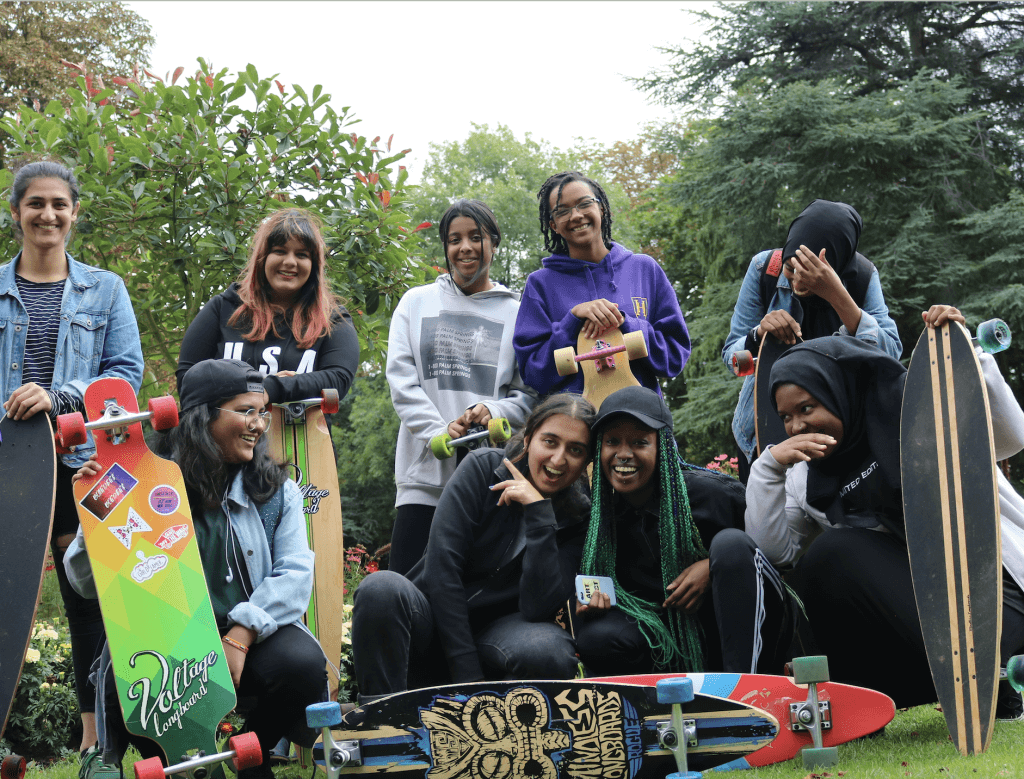
The Kelsays
My little girls ages 11 and 8 inspired me after they started skateboarding 3 years ago. I saw positive life lessons come to life through skateboarding and decided to start a youth program called Skate Rising that teaches compassion through service and empowerment through skateboarding to girls ages 4-18. That was just over two years ago. The program has now grown by over 300% and positively impacted so many. This summer our family took the program on tour up the West Coast to focus on feeding the need of the homeless, having girls commit to kindness and spread the love of skateboarding. We ended the tour by launching an International Day of Service and skateboarding with six events held around the world on the same day with the same goals.
Our family turned backyard into a skatepark with a giant bowl called the Ohana Bowl where we have flags from around the world lining the bowl because of our international “skate family.”
Just recently everything has inspired me to pick up a skateboard and try to learn myself at 34 years of age and as a mother of 4 incredible kids. I believe skateboarding is a sport but it is also an art form.
